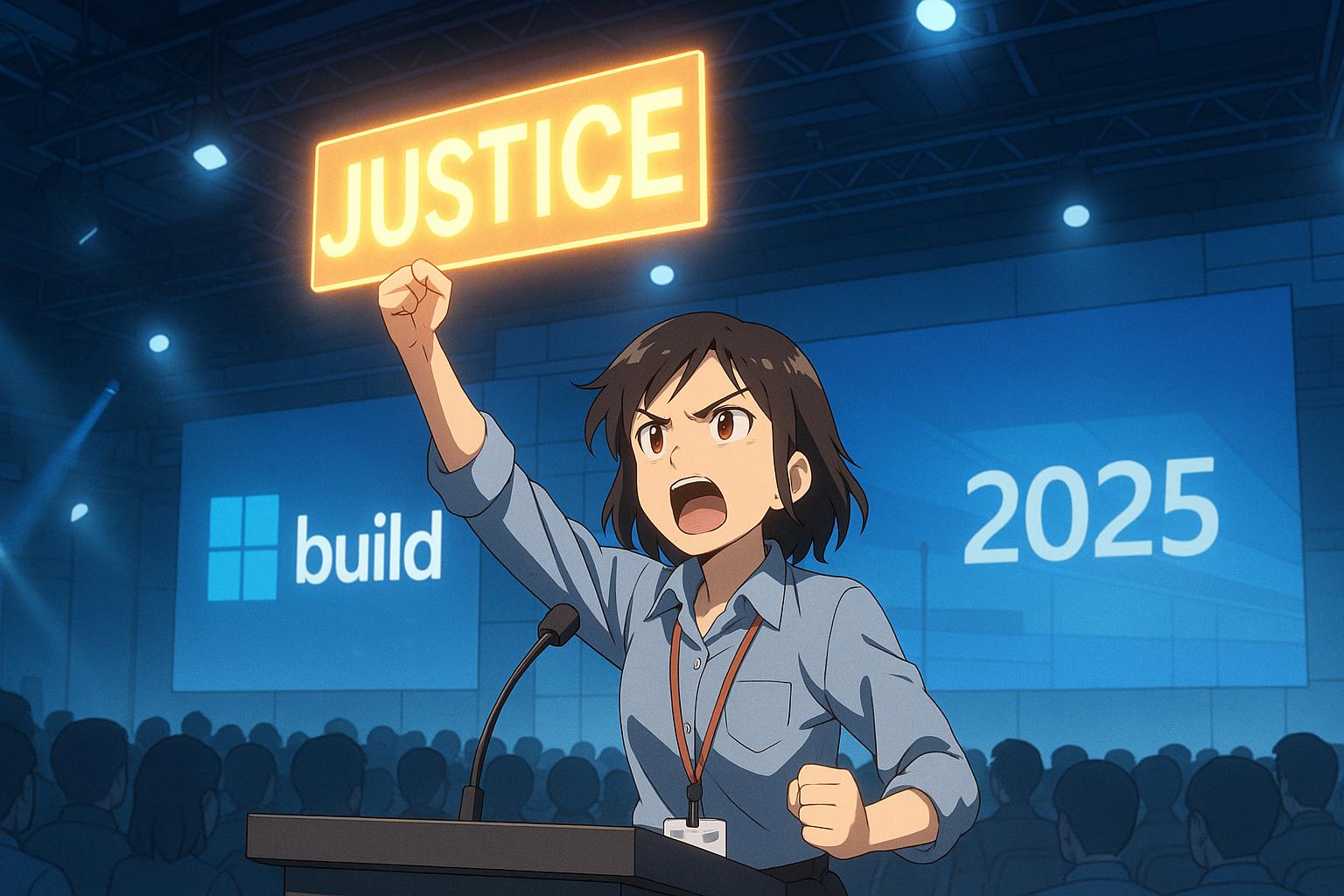Tensions erupted at Microsoft's Build 2025 conference in Seattle when an employee, Joe Lopez, disrupted CEO Satya Nadella's keynote speech, leading the audience in a chant for Palestinian freedom. Lopez, a member of the cloud hardware team, accused Microsoft of enabling military operations that harm civilians in Gaza, spotlighting a troubling trend of employee activism that reflects broader discontent with corporate complicity in conflict. This incident serves as a stark reminder of the moral obligations that technology companies all too frequently overlook in pursuit of profit.
This protest did not happen in isolation. It highlights an escalating movement, particularly among Microsoft employees, encapsulated in campaigns like ‘No Azure for Apartheid’. What began as a critique of Google's contracts with Israel has evolved into a clarion call for accountability within Microsoft itself, where thousands of workers are demanding transparency regarding military applications of their technology. Less than a year before the protest at Build 2025, dissent surfaced against the company’s leadership over ethical concerns tied to lucrative cloud contracts, raising questions about the corporate ethos in a period marked by violent geopolitical upheaval.
The underlying controversy revolves around the troubling intersection of technology and warfare. Microsoft may refute any direct ties between its Azure services and civilian casualties, but critics aptly describe Azure as "digital infrastructure for destruction." Lopez contends that internal assessments of these ethical dilemmas are merely a façade, accusing the company of suppressing legitimate demands for transparency that could illuminate their role in global conflicts.
Adding to the gravity of the situation, Microsoft’s recent admissions regarding its services for the Israeli military during the ongoing Gaza conflict have intensified public and employee scrutiny. Investigations revealed that Microsoft indeed provided advanced AI and cloud services to support Israeli operations, placing the company in an ethically precarious position. Even as Microsoft claims its technologies operate under ethical oversight, the murky realities of their practical application persist, prompting calls from both employees and human rights organizations for a reassessment of these partnerships.
As corporate narratives proclaim commitment to innovation, Microsoft's precarious positioning reveals an uncomfortable truth: the implications of its decisions extend well beyond employee protests; they underscore a reckoning within the tech industry where conversations about innovation cannot ignore ethical ramifications. Employees are increasingly demanding accountability for how their innovations are leveraged in high-stakes contexts, revealing a chasm between corporate aspirations and moral responsibilities.
In light of this backdrop, Microsoft's internal responses to dissent face critical examination. The establishment of an AETHER Committee, dedicated to ethics in AI, has not quelled the discontent among many workers who argue that its processes lack transparency and yield insufficient results. Previous incidents illustrate that employees voicing concerns over the company’s military contracts have encountered disciplinary actions, further stifling dissent and breeding apprehension about the potential risks associated with speaking out.
The protest at Build 2025 signals broader currents in the tech industry, where corporate goals increasingly clash with the ethical implications of their actions. Workers from Microsoft, as well as other tech giants like Google and Amazon, are challenging their employers over military contracts, creating a cross-industry dialogue centered on ethical accountability that is long overdue.
As this narrative unfolds, it becomes clear that the future of technology, especially in AI and cloud computing, must grapple with its entanglements in warfare and heed urgent demands for ethical oversight. Microsoft's dual ambitions of securing government contracts while maintaining its internal integrity find themselves at a critical juncture, one that may redefine not only operational strategies but also public perception of corporate responsibility. Experts warn that the long-term consequences of these protests could jeopardize talent recruitment, corporate reputation, and the sustainability of contentious contracts, as the conversation about the ethical sourcing of technology becomes increasingly salient.
In conclusion, the events surrounding Microsoft Build 2025 serve as a wake-up call for the tech sector. The discussions ignited in Seattle resonate with deeper ethical implications that stretch well beyond the conference stage and into the heart of global socio-political issues. As both technological innovation and ethical landscapes evolve, the willingness to confront uncomfortable truths will shape the industry's future trajectory, emphasizing the crucial need for accountability in light of corporate engagement in military ventures.
Source: Noah Wire Services
